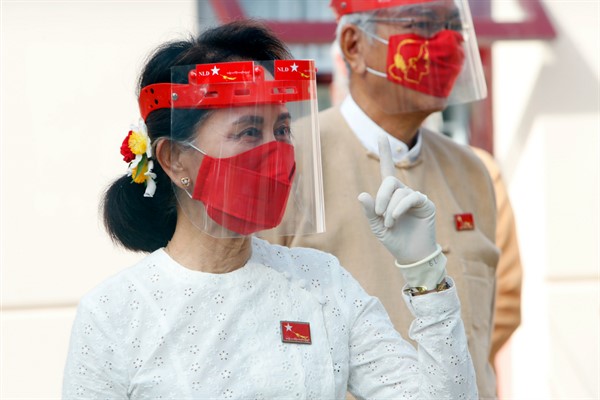Myanmar is preparing to hold general elections this Sunday, an occasion that might have marked a significant milestone in its ongoing transition from decades of military rule. The previous polls, in 2015, saw Aung San Suu Kyi’s National League for Democracy finally win the presidency and a majority of seats in parliament, following the dissolution of the military junta in 2011. Hopes were high that Suu Kyi, who is now Myanmar’s de facto leader, would usher in a new era of peace and expanded freedoms. Yet the consensus today is that Myanmar’s democratic transition has stalled—if it can even be said to be transitioning at all.
On many counts, Suu Kyi and the NLD have overseen the return of repression to the country. The number of politically motivated lawsuits—against journalists, civil society members, activists and ordinary citizens—has been increasing steadily each year, according to a 2019 report by Athan, a Myanmar-based advocacy group. More than 500 people are awaiting trial on politically motivated charges; 180 of them languish in pretrial detention. Social media users have even been prosecuted for criticizing the government on Facebook.
Journalists who report on taboo issues—especially the brutal persecution of the Rohingya, a predominantly Muslim ethnic minority—endure legal threats from military and NLD officials alike. Over the summer, COVID-19 became one of those taboo topics when the Transportation and Communications Ministry issued an order blocking 221 independent news sites for allegedly sharing “fake news” about the pandemic. Many of the blocked sites served the country’s ethnic minority populations, which have long felt alienated from the national government. All the while, Suu Kyi has continued to use state media outlets, which she had promised to disband upon her and her party’s election, as propaganda mouthpieces.

